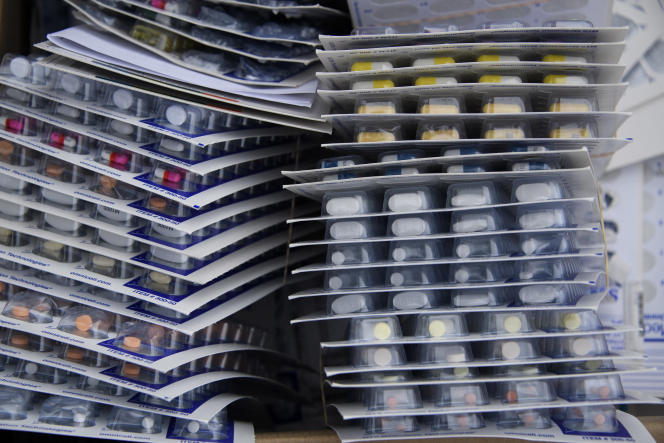Each year, more than forty new medicines are authorized by the European Medicines Agency (EMA). As many are approved by the Food and Drug Administration (FDA) and marketed in the United States. But novelty does not always rhyme with innovation for patients, according to a study published on July 5 in the British Medical Journal.
This reveals that less than half of the drugs approved by the European and American authorities between 2011 and 2020 have substantial added value for their first therapeutic indication – disease or symptoms for which they are developed – compared to existing products. The second therapeutic indications, obtained later and which broaden the field of application of the molecule, are 37% less likely to be of high therapeutic value than the first indication.
To arrive at these results, the study, led by Professor Kerstin Vokinger (University of Zurich, Switzerland), is based on drug evaluations carried out by the High Authority for Health (HAS) in France and those of the Federal Joint Committee, its German equivalent. The HAS Transparency Commission issues a scientific opinion on the clinical interest of the molecules as well as on the progress potentially made compared to the treatments already available. These opinions make it possible to define both whether the medicine will be reimbursed or not and to set its price.
Overrepresentation of cancer treatments
Kerstin Vokinger and her colleagues analyzed the evaluation reports of 149 initial therapeutic indications and 386 additional therapeutic indications of products approved by the FDA and/or by the EMA. The majority relate to cancer treatments (58%). Next come immunomodulators (10%) and anti-infectives (9%).
This overrepresentation of anti-cancer drugs is explained by the frequency of these diseases, their seriousness, as well as by the permanent need to find new options for patients experiencing treatment failure. “It is a field where many needs are not covered”believes Dominique Deplanque, president of the French Society of Pharmacology and Therapeutics (SFPT).
Targeted drugs already available to treat a given cancer are tested for other tumors with comparable biological abnormalities, in patients who have already had several lines of treatment. “We thus complete the therapeutic arsenal by broadening the indications of the molecules”, summarizes Professor Deplanque. This is how pembrolizumab, a humanized monoclonal antibody, originally approved for the treatment of advanced melanoma, was later cleared by the EMA and FDA to treat certain types of lung, kidney, head or neck cancer.
You have 56.03% of this article left to read. The following is for subscribers only.
